
Fermentation-Basel
Scope & Guideline
Fostering Innovation in Fermentation Science
Introduction
Aims and Scopes
- Microbial Fermentation Dynamics:
Research that explores the interactions between different microbial species during fermentation processes, including their effects on flavor, aroma, and nutritional profiles of various fermented products. - Bioprocess Optimization:
Studies aimed at improving fermentation efficiency through optimization of parameters such as temperature, pH, and substrate composition to enhance the yield and quality of fermentation products. - Health Benefits of Fermented Foods:
Investigations into the health-promoting properties of fermented foods, including their probiotic effects, role in gut microbiota modulation, and potential therapeutic benefits. - Sustainable Practices in Fermentation:
Research focused on the sustainable use of agro-industrial waste for fermentation processes, contributing to circular economy initiatives and waste valorization. - Innovative Fermentation Techniques:
Exploration of new fermentation technologies, including the use of non-conventional yeasts and bacteria, as well as novel bioreactor designs to enhance production efficiency. - Functional Ingredients and Bioactive Compounds:
Studies that assess the extraction and application of bioactive compounds from fermented products and their implications for health and nutrition.
Trending and Emerging
- Sustainable Fermentation Practices:
A growing trend towards utilizing waste materials and by-products for fermentation, reflecting a broader commitment to sustainability and environmental responsibility in food production. - Health-Centric Fermented Products:
Increasing interest in the health benefits of fermented foods, particularly in relation to gut health, immunity, and chronic disease prevention, highlighting the role of probiotics and functional foods. - Biotechnological Innovations:
Emerging methodologies in fermentation, such as the application of CRISPR and synthetic biology for strain improvement and product yield enhancement, are becoming focal points of research. - Microbial Interactions and Co-Cultures:
A trend towards studying the dynamics of microbial interactions within mixed fermentation systems, which can lead to improved flavor profiles and fermentation efficiencies. - Fermentation in Novel Applications:
Exploration of fermentation processes beyond traditional food and beverage applications, including bioplastics production, biofuels, and pharmaceuticals, showcasing the versatility of fermentation technology.
Declining or Waning
- Traditional Fermentation Techniques:
There has been a noticeable decrease in studies centered on traditional fermentation methods, as researchers increasingly shift towards innovative and modern techniques that leverage advanced biotechnological approaches. - Single Microorganism Fermentation Studies:
Research focusing solely on single strains of microorganisms is declining, with a growing interest in mixed cultures and microbial consortia that can yield more complex and desirable fermentation outcomes. - Chemical Additives in Fermentation:
The use of chemical additives to enhance fermentation processes is receiving less attention, as there is a shift towards natural and organic alternatives that align with consumer preferences for clean-label products.
Similar Journals
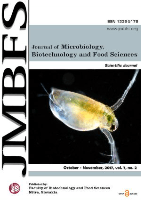
Journal of Microbiology Biotechnology and Food Sciences
Exploring the synergy of microbes, biotechnology, and food sciences.Journal of Microbiology Biotechnology and Food Sciences, published by SLOVAK UNIV AGRICULTURE NITRA, is a distinguished open-access journal dedicated to advancing scholarship in the interrelated fields of microbiology, biotechnology, and food sciences. With an ISSN of 1338-5178, this journal has been accessible to researchers worldwide since 2011, providing a platform for innovative studies that contribute to the understanding of microbial processes, biotechnological advancements, and food science applications. As reflected in its 2023 category quartiles, the journal holds notable positions in Biotechnology (Q3) and Food Science (Q3), and while it ranks in the lower quartiles for Microbiology (Q4) and Molecular Biology (Q4), it is committed to enhancing its impact within these domains. The journal encourages the submission of high-quality research articles, reviews, and short communications that address critical issues in these fields, making it an essential resource for academics, industry professionals, and students alike. Emphasizing both foundational research and practical applications, the Journal of Microbiology Biotechnology and Food Sciences stands as a vital contributor to the scientific discourse, fostering innovation and collaboration among researchers aiming to solve pressing challenges in food safety, biotechnology development, and microbial studies.

Acta Scientiarum Polonorum-Technologia Alimentaria
Showcasing Excellence in Food Technology InnovationsActa Scientiarum Polonorum-Technologia Alimentaria, published by Poznan University of Life Sciences, is a revered journal in the field of food science, showcasing cutting-edge research and innovations in food technology. Established as a leading platform within its domain, this journal is indexed under Scopus and ranks in the 2023 Q3 quartile for Food Science, demonstrating its commitment to high-quality scholarship. With an ISSN of 1644-0730 and E-ISSN 1898-9594, it serves as a critical resource for researchers, professionals, and students seeking to stay at the forefront of advancements in food safety, quality control, and sustainable practices. The journal has also been recognized for its contributions to the agricultural and biological sciences, positioning itself at rank #205 out of 389 in this competitive field. While currently not offering open access, the journal's valuable insights and findings, especially as it publishes through 2024, play a crucial role in advancing knowledge and fostering collaboration among experts in the food science sector.
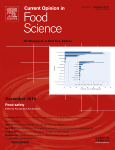
Current Opinion in Food Science
Exploring Innovations in Culinary ResearchCurrent Opinion in Food Science is a premier peer-reviewed journal published by ELSEVIER SCI LTD that focuses on the latest advancements and research in the domain of food science and technology. With its ISSN 2214-7993 and E-ISSN 2214-8000, this journal serves as a critical platform for researchers and professionals to share insights and opinions on emerging trends, innovations, and challenges faced in food science. The journal enjoys an impressive impact factor and ranks in the first quartile (Q1) in both Applied Microbiology and Biotechnology and Food Science, symbolizing its influence and reputation in the field. It is strategically located in the Netherlands and conducts its academic dialogue with a broad scope that includes essential topics in food safety, nutrition, and sustainable practices. Operating from 2015 to 2024, the journal has established itself as a critical resource for the global academic community, boasting excellent Scopus rankings—#9 out of 389 in Food Science and #6 out of 127 in Applied Microbiology and Biotechnology—indicating its high relevance and impact. Readers can look forward to insightful articles and comprehensive reviews that bridge the gap between fundamental research and practical application in the ever-evolving food science landscape.
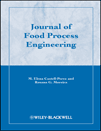
JOURNAL OF FOOD PROCESS ENGINEERING
Advancing food science through innovative engineering.JOURNAL OF FOOD PROCESS ENGINEERING, published by WILEY, is a prestigious academic journal dedicated to advancing the field of food processing through innovative engineering research and practical applications. With an ISSN of 0145-8876 and an E-ISSN of 1745-4530, this journal serves as a crucial platform for researchers and professionals focusing on the intersection of chemical engineering and food science. Operating in the United States and established in 1977, it has gained a reputation for its rigorous peer-review process and high-quality publications, reflected in its Category Quartiles of Q2 in both Chemical Engineering (miscellaneous) and Food Science for 2023. The journal is also well-positioned within the Scopus rankings, holding the 104th spot out of 389 in Agricultural and Biological Sciences and the 82nd in General Chemical Engineering. While it currently does not offer Open Access options, the JOURNAL OF FOOD PROCESS ENGINEERING remains an indispensable resource for those looking to explore critical studies and developments that shape food processing technologies by the year 2024 and beyond.
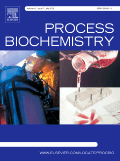
PROCESS BIOCHEMISTRY
Pioneering insights in process biochemistry since 1950.PROCESS BIOCHEMISTRY is a premier journal published by Elsevier Science Ltd, dedicated to advancing the field of biochemistry, microbiology, and bioengineering. With an ISSN of 1359-5113 and an E-ISSN of 1873-3298, this renowned journal is recognized for its impactful contributions, as demonstrated by its Q2 ranking in Applied Microbiology and Biotechnology, Biochemistry, and Bioengineering categories as of 2023. Covering a wide array of topics since its inception in 1950, PROCESS BIOCHEMISTRY serves as a crucial platform for researchers and professionals to disseminate innovative findings and develop new insights in enzyme technology, metabolic pathways, and bioreactor design. Although the journal operates under a non-open access policy, it remains vital for those engaged in cutting-edge biochemical research and development. Located in the United Kingdom, it continues to facilitate scientific discourse and foster collaboration among industry experts and academic scholars worldwide.

Current Research in Food Science
Fostering Collaboration for a Sustainable Food FutureCurrent Research in Food Science is a leading peer-reviewed academic journal published by Elsevier, specializing in the dynamic field of food science. Since its transition to an Open Access model in 2019, the journal has broadened its reach, contributing significantly to the dissemination of high-quality research. With strong rankings, including a Q1 quartile status in Applied Microbiology and Biotechnology, Biotechnology, and Food Science, it stands out as a pivotal resource for scholars. Based in the Netherlands, current research published within its pages spans a wide range of relevant topics, ensuring that researchers and practitioners stay abreast of the latest advancements. The journal's impressive Scopus rankings enhance its credibility, with a percentile standing in the 74th to 83rd range across relevant categories, underscoring its impact and importance in the academic community. Current Research in Food Science aims to foster the exchange of innovative ideas and foster collaborative efforts among researchers, making it an essential resource for those engaged in advancing the science and technology of food.

Food Chemistry: Molecular Sciences
Bridging Molecular Biology and Culinary ArtsFood Chemistry: Molecular Sciences is a leading academic journal published by ELSEVIER, dedicated to advancing knowledge in the fields of food science and molecular biology. With an ISSN of 2666-5662, this journal is a key platform for researchers and professionals aiming to disseminate innovative research findings from 2020 through 2024. Recognized for its quality, it stands in the Q1 category for Food Science and Q2 for Molecular Biology as of 2023, showcasing its commitment to high-impact publications. The journal is indexed in Scopus, earning ranks of #98/389 (74th percentile) in Agricultural and Biological Sciences - Food Science and #214/410 (47th percentile) in Biochemistry, Genetics and Molecular Biology - Molecular Biology. Each article represents cutting-edge research that drives the understanding and application of molecular principles in food chemistry, making it an essential resource for anyone involved in the field. Although this journal does not offer open access, its rigorous peer-review process ensures that the content is reliable and of significant academic value, contributing profoundly to the body of knowledge in the respective disciplines. Located in Amsterdam, Netherlands, Food Chemistry: Molecular Sciences continues to inspire scholarly discussion and innovation within the scientific community.

INTERNATIONAL JOURNAL OF DAIRY TECHNOLOGY
Fostering innovation in dairy science for a sustainable future.International Journal of Dairy Technology, published by Wiley, serves as a pivotal platform for advancing research and innovation within the field of dairy science and technology. Established in 1947, this esteemed journal has garnered a significant impact factor, reflecting its influential role in disseminating critical findings and fostering discourse among professionals, researchers, and students alike. With a distinguished ranking in Q2 across several categories including Bioengineering, Food Science, and Process Chemistry and Technology, it remains integral to the academic community, demonstrating high visibility and relevance. Researchers can access a wealth of open-access content, enhancing the sharing of knowledge within the discipline. The journal’s commitment to exploring emerging trends, innovative practices, and comprehensive analyses of dairy technology ensures that it remains at the forefront of advancements in this vital area of food science and engineering.
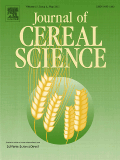
Journal of Cereal Science
Transforming cereal research into global knowledge.The Journal of Cereal Science, published by ACADEMIC PRESS LTD- ELSEVIER SCIENCE LTD, stands as a pivotal platform for the dissemination of high-quality research in the fields of biochemistry and food science, maintaining an impressive impact factor that reflects its influential position in academia. With a Q1 ranking in Food Science and a Q2 in Biochemistry as of 2023, the journal is recognized for its rigorous peer-review process and its commitment to advancing the understanding of cereal grains and their applications. Since its inception in 1983, the journal has provided comprehensive insights into areas such as grain genetics, processing technology, and nutritional aspects of cereals, catering to an audience of researchers, professionals, and students alike. The scope encompasses a diverse range of topics, ensuring a broad interdisciplinary appeal. Published through the prestigious Elsevier platform, it fosters global collaboration and knowledge sharing, thereby playing a crucial role in shaping the future of cereal science.

ANNALS OF MICROBIOLOGY
Transforming ideas into impactful microbiological advancements.ANNALS OF MICROBIOLOGY is a prestigious journal dedicated to advancing the field of microbiological research, published by BMC, renowned for its commitment to providing open access to vital scientific findings. With its ISSN 1590-4261 and E-ISSN 1869-2044, this journal provides a platform for the dissemination of high-quality research since its inception in 1997. Renowned for its rigorous peer-review process, it has attained a commendable Q2 ranking in the Applied Microbiology and Biotechnology category in 2023, reflecting its significant contributions to the discipline. Positioned within the 67th percentile among its peers in Scopus rankings, ANNALS OF MICROBIOLOGY continues to facilitate the exchange of innovative ideas and methodologies, serving as an essential resource for researchers, professionals, and students alike. The journal covers a broad spectrum of topics, emphasizing the intersection of microbiology with applied sciences, thereby fostering an environment that encourages collaboration and advancement in this vital field. Scholars seeking to stay at the forefront of microbiological studies will find ANNALS OF MICROBIOLOGY an invaluable addition to their academic pursuits.